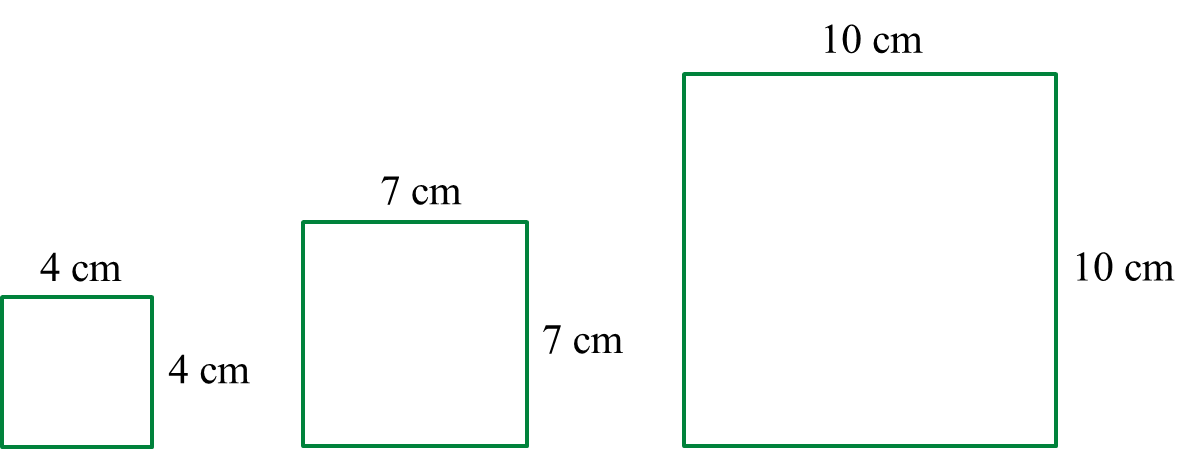Question 14 (4 marks):
It is given that p, 2 and q are the first three terms of a geometric progression.
Express in terms of q
(a) the first term and the common ratio of the progression.
(b) the sum to infinity of the progression.
Solution:
(a)
(b)
It is given that p, 2 and q are the first three terms of a geometric progression.
Express in terms of q
(a) the first term and the common ratio of the progression.
(b) the sum to infinity of the progression.
Solution:
(a)
(b)
Question 15 (3 marks):
A student has a wire with the length of 13.16 m. The student divided the wire into several pieces. Each piece is to form a square. Diagram 7 shows the first three squares formed by the student.

Diagram 7
How many squares can be formed by the student?
Solution:
A student has a wire with the length of 13.16 m. The student divided the wire into several pieces. Each piece is to form a square. Diagram 7 shows the first three squares formed by the student.

Diagram 7
How many squares can be formed by the student?
Solution:
Question 16 (2 marks):
Given 2p + 2p = 2k. Express p in terms of k.
Solution:
Given 2p + 2p = 2k. Express p in terms of k.
Solution: